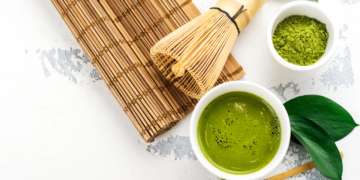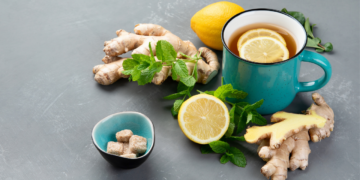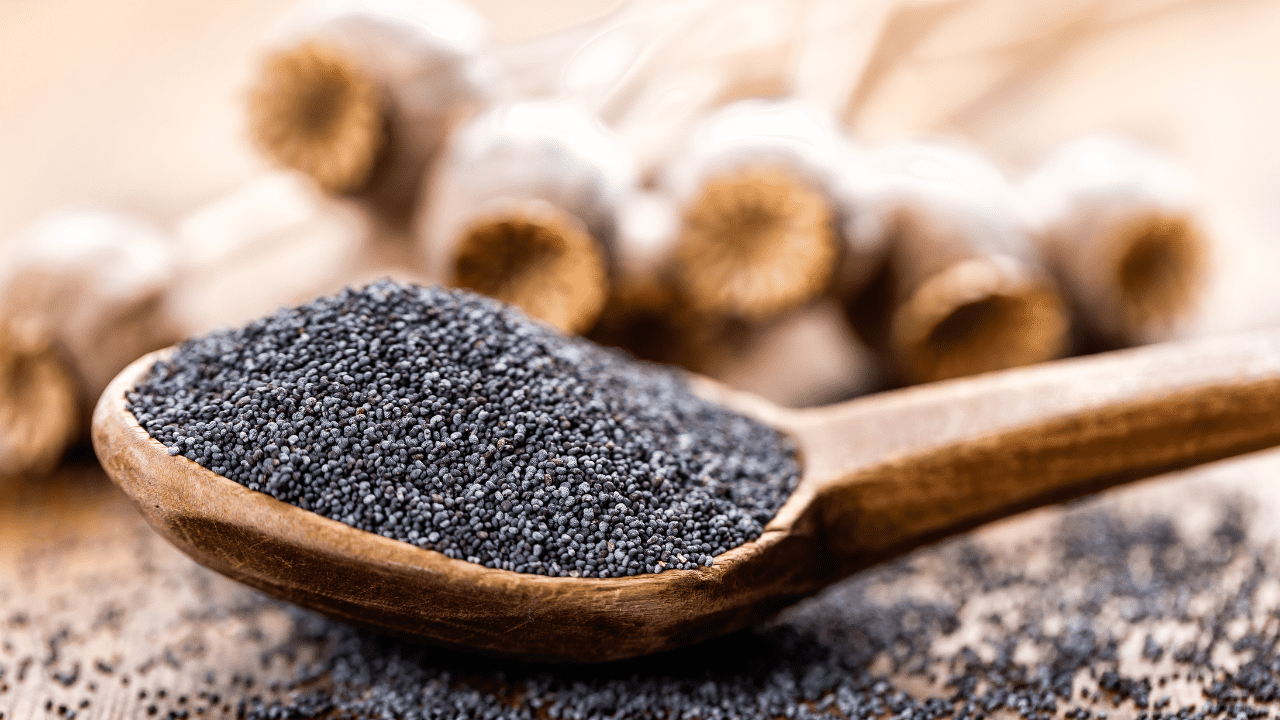Historically, raspberry leaves have had a place in ancient herbal treatments. In fact, raspberry leaf tea was used to make labor easier, and to manage menstrual cramps. Some women consume raspberry leaf either in tablet form or in the form of tea following the belief that it makes the labor shorter and a little bit easier, but is this trend backed by science? How safe is it to consume raspberry leaf tea in pregnancy?
- Can Pregnant Women Benefit from Drinking Raspberry Leaf Tea?
- Can Raspberry Leaf Tea Improve Uterine Tone?
- Can Raspberry Leaf Reduce Postpartum Hemorrhage?
- Can Raspberry Leaf Help With Morning Sickness?
- What are the Possible Health Benefits of Raspberry Leaf Tea to a Pregnant Woman
- What is the Ideal Time to Start Drinking Raspberry Leaf Tea in Pregnancy
- How to Prepare a Healthy Raspberry Leaf Tea?
- Are There Any Side-Effects of Raspberry Leaf Tea?
- Conclusion
Can Pregnant Women Benefit from Drinking Raspberry Leaf Tea?
Some studies suggest that Raspberry leaf tea is safe during pregnancy and that it does help in shortening the second stages of labor by about 9.5 minutes. Additionally, those studies suggest that drinking raspberry leaf can reduce the incidence of forceps delivery. However, there is not high statistical significance to draw this conclusion. Additionally, very little study has been on this subject matter so far. Attributing drinking raspberry leaf to faster delivery based on a few small studies would be misleading.
Can Raspberry Leaf Tea Improve Uterine Tone?
The most popular claim regarding raspberry leaf tea is that it reduces labor pain. From a scientific perspective, there are no scientific studies to back this claim at all.
It is also suggested that drinking red raspberry leaf tea during pregnancy will improve uterine tone. Unfortunately, here again, there are little to no studies to back this either. Fragarine which is a component of the raspberry leaf that is believed to be the component that increases uterine tone has shown to cause uterine relaxation in living animal models, like rats, cats, guinea pigs, etc. Note that no studies with human subjects have been done.
Can Raspberry Leaf Reduce Postpartum Hemorrhage?
Some people also claim that it reduces postpartum hemorrhage and increases breast milk production, but again there are no real scientific studies done to confirm this so far.
Can Raspberry Leaf Help With Morning Sickness?
Pregnant women also lean towards raspberry leaf tea to control their morning sickness. However, there is no evidence that it helps with nausea either.
What are the Possible Health Benefits of Raspberry Leaf Tea to a Pregnant Woman
Even though the widely known benefits of raspberry leaf tea are not backed by science yet, that doesn’t mean that a pregnant woman can’t benefit from it at all. Some of the ways you can benefit from it are as follows
A Good Source of Antioxidant
Raspberry leaf tea is a very healthy natural supplement and is very rich in many essential vitamins and minerals.
It is also very rich in antioxidants (flavonoids and zinc). Studies suggest that antioxidant consumption by pregnant women may have possible benefits to the mother and the baby.
Flavonoids help with weight management in obese pregnant women. So, if that’s something of an issue for you, adding raspberry leaf tea to your diet may be a good idea.
Raspberry leaf tea is also rich in zinc, a mineral with antioxidant activity. Higher maternal zinc consumption is associated with better lung function in babies.
Might Help With Reducing Sugar Levels
The whole of the berry family, including the raspberry leaf tea has a hypoglycemic effect. If your sugar levels in pregnancy are towards the higher end and not on any medications for it (borderline, but not GDM) you can take advantage of this tea to reduce your blood sugar levels naturally.
If you are, however, diagnosed with type 2 diabetes mellitus or gestational diabetes mellitus (GDM) and are currently on insulin, you can still benefit from it but be very cautious of its use along with insulin, as a combination of both may lead to hypoglycemia.
What is the Ideal Time to Start Drinking Raspberry Leaf Tea in Pregnancy
It is claimed that raspberry tea leaves improve uterine tone and stimulate uterine contraction and for this reason, there is a controversy regarding its safety in the first trimester of pregnancy.
As studies have neither confirmed nor denied the fact that raspberry leaf tea increases uterine, it’s best to be on the safer side, and avoid using it in the first trimester. The theory is that increased uterine tone in the first trimester might lead to miscarriage.
However, its use in the second and third trimesters of pregnancy (32 weeks of gestation)is considered to be safe.
How to Prepare a Healthy Raspberry Leaf Tea?
Raspberry leaf tea is made of the dried leaves of the raspberry plant. Keep in mind that it’s raspberry leaf tea and not raspberry fruit tea. To prepare a fresh pot of raspberry leaf tea you can either buy premade-tea bags or loose tea. Steep the teabags for 10-15 minutes in hot water, depending upon how strong you want your tea to be.
Make sure that the premade tea you are using consists of actual raspberry leaf, and is not just a raspberry flavored tea. You can also get raspberry leaf mixed with other herbs.
If you have access to fresh raspberry leaves then you can use that as well. Keep in mind that you will be using fresh leaves, and so you need to use really hot water to get the nutrients out of the leaf. Let it steep for 10-15 minutes. Alternatively, you can also put the leaves in boiling water. Boil it for 1 minute, and then let it steep for 5-10 minutes more.
You can enjoy your tea with or without sugar or honey. You can also put some more herbs of your choice to further enhance the taste and nutrition value of your tea.
Are There Any Side-Effects of Raspberry Leaf Tea?
Raspberry leaf tea is pretty safe for consumption. Studies so far have noticed no negative effects on the mother or the baby. However, if you have a known allergy to raspberry, it’d be best if you avoid it.
One case was noted where a 32 weeks pregnant woman with gestational diabetes mellitus (GDM) had an episode of hypoglycemia following consumption of raspberry leaf tea. The link between the hypoglycemic effect and raspberry was established. It is though not clear with how many doses such effect would be seen. In this case, the dose of insulin had to be adjusted.
The hypoglycemic effect of the berry family is well known, and so it is recommended that you be very cautious of the amount of raspberry leaf tea (in fact, any berry) you are consuming if you have GDM.
Keep a close eye on how much shift in glucose level occurs after each cup of raspberry leaf tea and you can decide how many cups would be safe for you.
Since we don’t have standard guidelines regarding this, to be safe, in general, keep your maximum limit of intake to 1 cup per day. Stop using if the drop in glucose level is very significant even with 1 cup of tea. Do not alter your insulin dose by yourself. Always consult your doctor first.
Tannin is another compound that is very richly present in raspberry leaf tea. Tannin affects the absorption of iron from the gastrointestinal tract. Although, studies suggest that our body adapts to tannin and the overall iron absorption is usually not affected in long-term users, but this is not a risk you should be willing to take while being pregnant, especially if you are not a regular tea drinker. it is recommended that you keep a difference of at least a few hours between the consumption of your iron/folic acid supplements and your raspberry leaf tea. Nevertheless, there is no documented evidence of any drug interactions with raspberry leaf.
Just like with pretty much everything, consuming too much raspberry tea might upset your stomach. There is no standard dosage available for its usage for you to follow. So, to be safe, do not exceed your daily intake of raspberry leaf tea more than 2 times a day.
If it makes you uncomfortable in any way, or if it increases the intensity of your Braxton-Hick’s contraction way more than usual, discontinue use.
Conclusion
You can supplement your body with this healthy herbal tea during pregnancy with a little bit of caution. Though there are so many claims regarding the child-birth process, there is very little to no evidence to back most of the claims of drinking raspberry leaf tea during pregnancy. Most of the purported health benefits of raspberry leaf tea are anecdotal.
Having said that, it is still a healthy tea and a pregnant woman can still benefit from it, but not necessarily in touted ways.
Extra precaution should be taken by those with gestational diabetes. If you are someone who is at a higher risk of having pregnancy-related complications, it is not recommended to depend solely on raspberry leaf tea for better pregnancy outcomes.
Always follow-up with your ObGyn throughout your pregnancy. Take the necessary supplements and get the required tests done whenever advised. This will ensure a healthy pregnancy and a better outcome of the pregnancy. Healthy herbal concoctions should always be secondary to your basic antenatal care.







